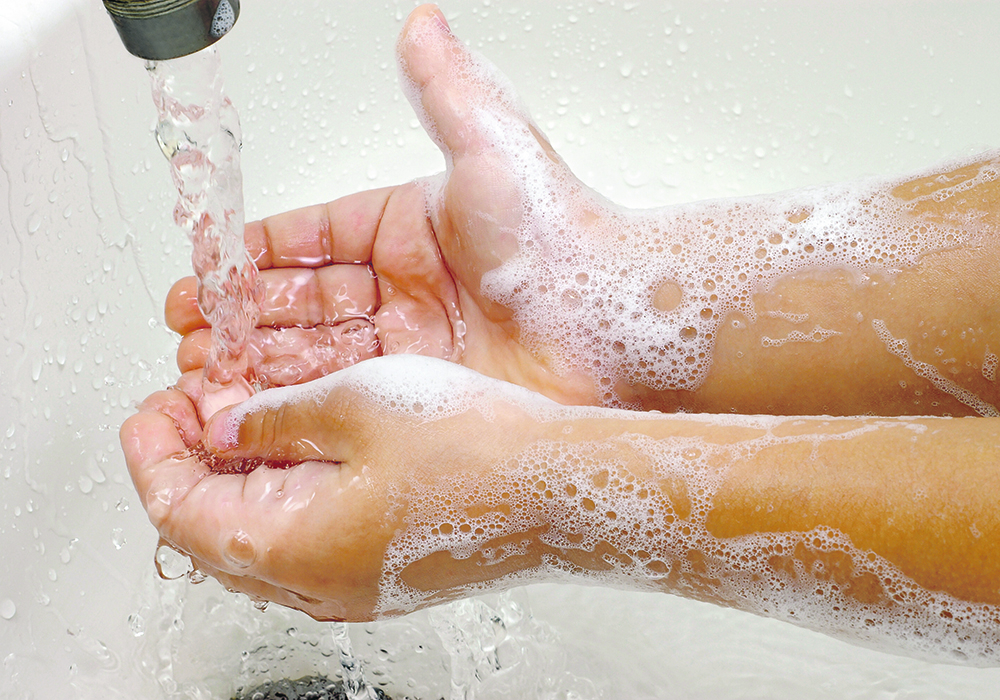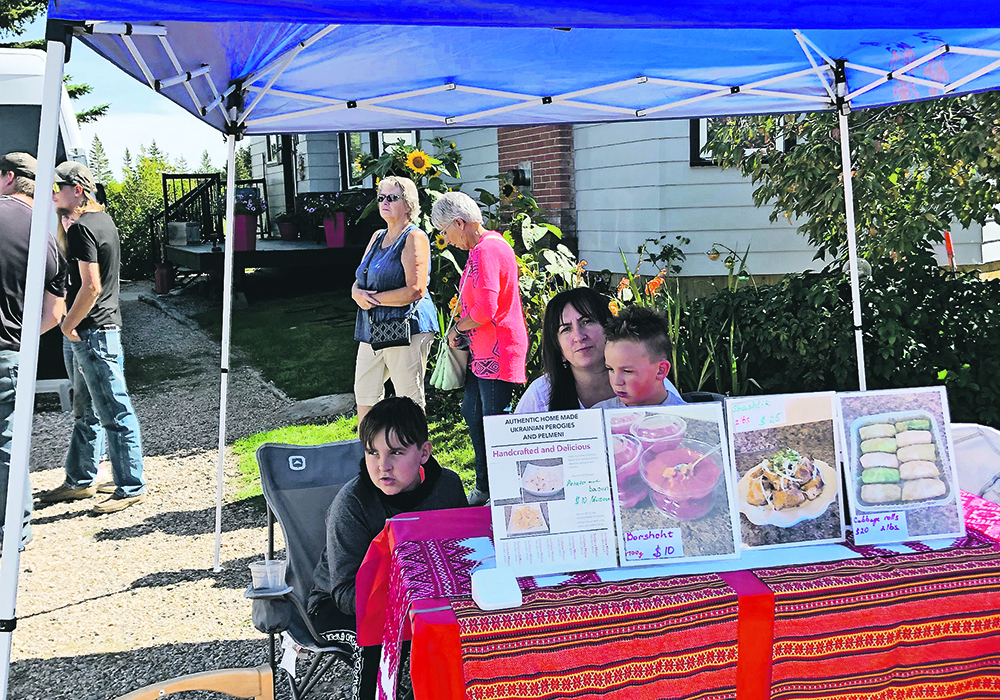Excessive fear can lead to questionable food and wellness choices, but heightened awareness also seen as beneficial
Deana Williams has long been a chronic hand washer, with a particular disdain for public door handles.
But during the pandemic, she found that her health-related anxiety spiked, particularly after a family member was hospitalized, and in critical condition, after contracting the Delta variant of COVID-19.
“I wouldn’t leave the house,” says Williams, who is immune compromised.
“And it made my husband super, hyper vigilant. If someone sneezed at work, he was freaking out because he’s like, ‘I can’t catch that. Can’t bring it home.’ ”
Read Also

Farm auctions evolve with the times
Times have changed. The number of live, on-farm auctions is seeing a drastic decline in recent years. Today’s younger farmers may actually never experience going to one.
Williams says she noticed this heightened anxiety with several of her staff members at the day care she runs in Regina.
“They (the kids) would sneeze, or have allergies and, oh my gosh, they’d have to be tested for COVID … or ‘I need to change my clothes, I need to wash my hands, sanitize.’ We would have never done that before.”
Williams is not an exception. According to Gordon Asmundson, a psychology professor at the University of Regina, data shows that health anxiety has been increasing for the last several decades, but it jumped during the pandemic.
Data analyzed by researchers at the University of Waterloo in Ontario suggested that the number of Canadians experiencing “high” anxiety rates jumped about four to five times above the normal rates during the pandemic.
Currently, about 20 percent of the population have elevated levels of health anxiety, Asmundson says.
“During a pandemic, people with high health anxiety are more likely to be more vigilant for bodily sensation or changes, especially those that have been identified as part of viral infection, and to misinterpret any such changes as evidence of having COVID,” he says.
This type of anxiety can have major impacts on our behaviour, he says, causing people to avoid spaces they deem unsafe, use medical resources excessively or do extensive health-related internet searches.
Health anxiety may be harmful to health, but it is positive news for the health and wellness food sector, which is enjoying significant growth.
Valued at US$861.1 billion in 2022, the sector is projected to reach $1.6 trillion by 2030, representing an annual growth rate of 7.9 percent.
Much of this growth will be driven by anxiety and people’s increased focus on health post-pandemic, according to many experts.
Anxiety can be a powerful driver of behaviour, says Nick Carleton, a psychology professor at the University of Regina.
“If I can make you worried, if I can add that bit of uncertainty, that can create all kinds of opportunities for me to do things,” says Carleton, who studies the link between uncertainty and intolerance of the unknown and anxiety.
In the marketing world, fear is commonly used to influence consumers’ purchasing behaviour.
Fear marketing is done by overstating existing risks or focusing aggressively on risks without a balanced, full-perspective understanding of an issue, says Dwight Heinricks, who teaches marketing at the University of Regina.
“And in both cases, it is achieved through relentless repetition,” he says. “Repetition tends to make an untruth be accepted as truth without the due diligence that is warranted.”
Fear-based marketing is effective because it triggers emotion, he says.
“People make purchase decisions in part underpinned by logic, and in part based on emotion … to greater or lesser degrees,” he says.
Playing to people’s fears is also an effective way of cutting through the uncertainty in our day to day lives, which Carleton’s work has shown to have increased over the last two decades (consider how many times you heard the term “unprecedented” during the pandemic).
Interestingly, as this increase occurred, our tolerance for uncertainty has decreased, we’ve lost opportunities to regain it and we’ve lost trust in the authorities, entities and sources that feed us regular information.
All these factors combined create an environment conducive to anxiety, Carleton says.
One result of this is that our ability to make informed decisions is affected. Instead of taking the time and thought to make informed decisions, we tend to rely on mental shortcuts based on information that most easily comes to mind or is most accessible.
“I want to have a signal of some kind that tells me that I can pass this, make a quick decision and move on to the next thing in my day,” Carleton says.
This means you are more likely to tap into information from the food influencer you see on Instagram every day, rather than sound information from your family doctor, whom you see maybe twice a year.
When it comes to choices about food purchases, labels are one way for us to leverage mental shortcuts. For example, if you are exposed to the idea that foods labelled “gluten-free” are healthier than other options, you might find yourself grabbing the gluten-free option without carefully thinking it through. This is because you’ve already made the decision that you believe it’s safer and that makes you feel more certain, and therefore less anxious, Carleton says.
“And it becomes harder for us to change our minds after we’ve made that decision because you’ve reinforced a certainty and the decision-making pattern. That’s why we can also see people get locked into difficult-to-change opinions,” he says.
The good news is that, as of last year, data showed that our collective anxiety levels had slightly lessened.
For Williams, this is the case. Looking back, she believes her pandemic behaviour was excessive.
“I think, how ridiculous was it that we stuck our daughter up in her bedroom for 10 days because she was a close contact,” she says, adding her family was following the health authority guidelines at the time.
“She was stuck away for 10 days. It’s horrible. What the hell were we thinking?”
Asmundson says a key indicator that your health anxiety has become excessive is when it interferes with your ability to function in your day-to-day life.
“This is usually characterized by a number of unhelpful behaviours, such as excessive checking of the internet or medical resources for details of illness symptoms or reassurance seeking, excessive health-care utilization, frequent efforts to find reassurance from significant others that all is fine,” he says, adding he is currently working on an online intervention project to help people dealing with pandemic-related health anxiety.
But for many people, anxiety rates have not returned to pre-pandemic levels. And for some, that’s a good thing.
Williams says she finds herself washing and sanitizing her hands more frequently and she’s also noticed that parents of kids at her day care are more diligent about keeping kids home when they have symptoms of cold or flu.
“I’m always so surprised that I get those phone calls now,” she says, adding she suspects it’s also because workplaces have become more flexible around sick days for parents.
“I think, ‘well, that was really nice of you. Thank you.’”















